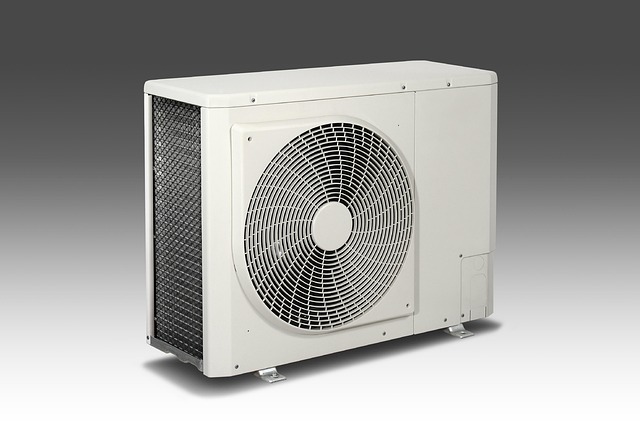Commercial electric boilers are reshaping heating in institutions and industries with their clean, efficient, and sustainable performance, replacing fossil fuel systems. These advanced boilers produce zero on-site emissions, offer high capacity or modular designs, and provide reliable, cost-effective solutions for data centers, hospitals, schools, and commercial buildings. Their growing popularity reflects a global trend towards greener energy sources and efficient HVAC systems, marking a significant step toward environmental sustainability and improved air quality.
Clean-burning commercial electric boilers are transforming heating solutions, delivering zero on-site emissions. This article delves into their pivotal role in fostering environmental sustainability, exploring key benefits and technological advancements. We dissect the features and advantages of these innovative systems, highlighting their impact on reducing carbon footprints. Additionally, we examine implementation strategies and future prospects, underscoring a growing trend towards greener heating solutions among commercial establishments.
- Understanding Commercial Electric Boilers: Their Role and Benefits
- The Impact of Clean-Burning Technology on Environmental Sustainability
- Key Features and Advantages of Zero-Emission Electric Boilers
- Implementation and Future Prospects: A Shift Towards Greener Heating Solutions
Understanding Commercial Electric Boilers: Their Role and Benefits

Commercial electric boilers have emerged as a game-changer in industrial and institutional heating sectors, offering a clean and efficient alternative to traditional gas or oil-fired boilers. These advanced systems utilize electric heating systems to produce hot water or steam, ensuring zero on-site emissions. With their environmental benefits, commercial electric boilers are becoming increasingly popular, especially with the growing demand for sustainable solutions.
They play a pivotal role in reducing carbon footprints and promoting energy efficiency, making them an attractive option for businesses and institutions aiming to transition to greener energy sources. High-capacity electric boilers can cater to large-scale applications, while modular boiler systems provide flexibility and customization for diverse needs. This technology is particularly beneficial for facilities seeking reliable, cost-effective, and sustainable heating solutions, such as data centers, hospitals, schools, and commercial buildings, contributing to a greener future through efficient commercial HVAC systems and electric hot water boilers.
The Impact of Clean-Burning Technology on Environmental Sustainability

The adoption of clean-burning commercial electric boilers is a significant step towards environmental sustainability in the industrial and institutional sectors. Traditional heating methods often emit harmful pollutants, contributing to air quality issues and climate change. However, modern electric heating systems, particularly those designed for commercial applications, offer a greener alternative. These advanced commercial boiler technologies utilize electricity to generate heat without producing any on-site emissions, thereby reducing the carbon footprint associated with heating processes.
By transitioning to clean-burning electric boilers, businesses can contribute to improved air quality, especially in urban areas with high population density. High-capacity electric boilers and energy-efficient models are specifically designed for commercial HVAC systems and institutional heating needs, ensuring effective temperature control while minimizing environmental impact. This shift not only benefits the environment but also has economic advantages, as modular boiler systems allow for flexible installation and efficient space utilization, making them a viable solution for modern facilities.
Key Features and Advantages of Zero-Emission Electric Boilers

Commercial electric boilers are transforming the way we heat our spaces, offering a clean and sustainable alternative to traditional fossil fuel-based systems. These zero-emission boilers are equipped with advanced technology, ensuring they’re not just environmentally friendly but also highly efficient and reliable. One of their key features is the elimination of on-site emissions, which significantly reduces air pollution and contributes to better indoor air quality, especially in institutional settings like schools and hospitals.
The advantages extend beyond environmental benefits. Electric heating systems provide precise temperature control, allowing for optimized energy usage. High capacity electric boilers can meet the demands of large facilities, making them suitable for commercial HVAC systems. Modular boiler systems offer flexibility, enabling easy expansion or reduction to match specific needs. Moreover, electric steam and hot water boilers are known for their low operational costs and minimal maintenance requirements, making them a cost-effective and sustainable choice for institutional heating.
Implementation and Future Prospects: A Shift Towards Greener Heating Solutions

The adoption of clean-burning commercial electric boilers is poised to revolutionize institutional heating, marking a significant shift towards greener energy solutions. These advanced systems offer a compelling alternative to traditional gas-fired boilers by eliminating on-site emissions and significantly reducing the carbon footprint associated with heating large spaces. As the world grapples with climate change, this transition becomes increasingly vital, aligning with global efforts to mitigate environmental impact.
Looking ahead, the future of commercial heating appears to be dominated by electric heating systems, particularly high capacity electric boilers and modular boiler systems. The versatility and energy efficiency of these technologies cater to diverse applications, from electric steam boilers in industrial processes to electric hot water boilers for residential and commercial HVAC systems. This trend is expected to gather momentum as governments and businesses worldwide prioritize sustainable practices, driving the demand for cleaner, more efficient commercial boiler technology.
Commercial electric boilers, with their clean-burning capabilities and zero on-site emissions, represent a significant step towards environmentally sustainable heating solutions. By adopting these advanced technologies, businesses can contribute to reducing carbon footprints while enjoying the benefits of efficient and cost-effective energy systems. As we look ahead, the future of commercial heating appears greener, with electric boilers set to play a pivotal role in creating a more sustainable and eco-friendly world.






